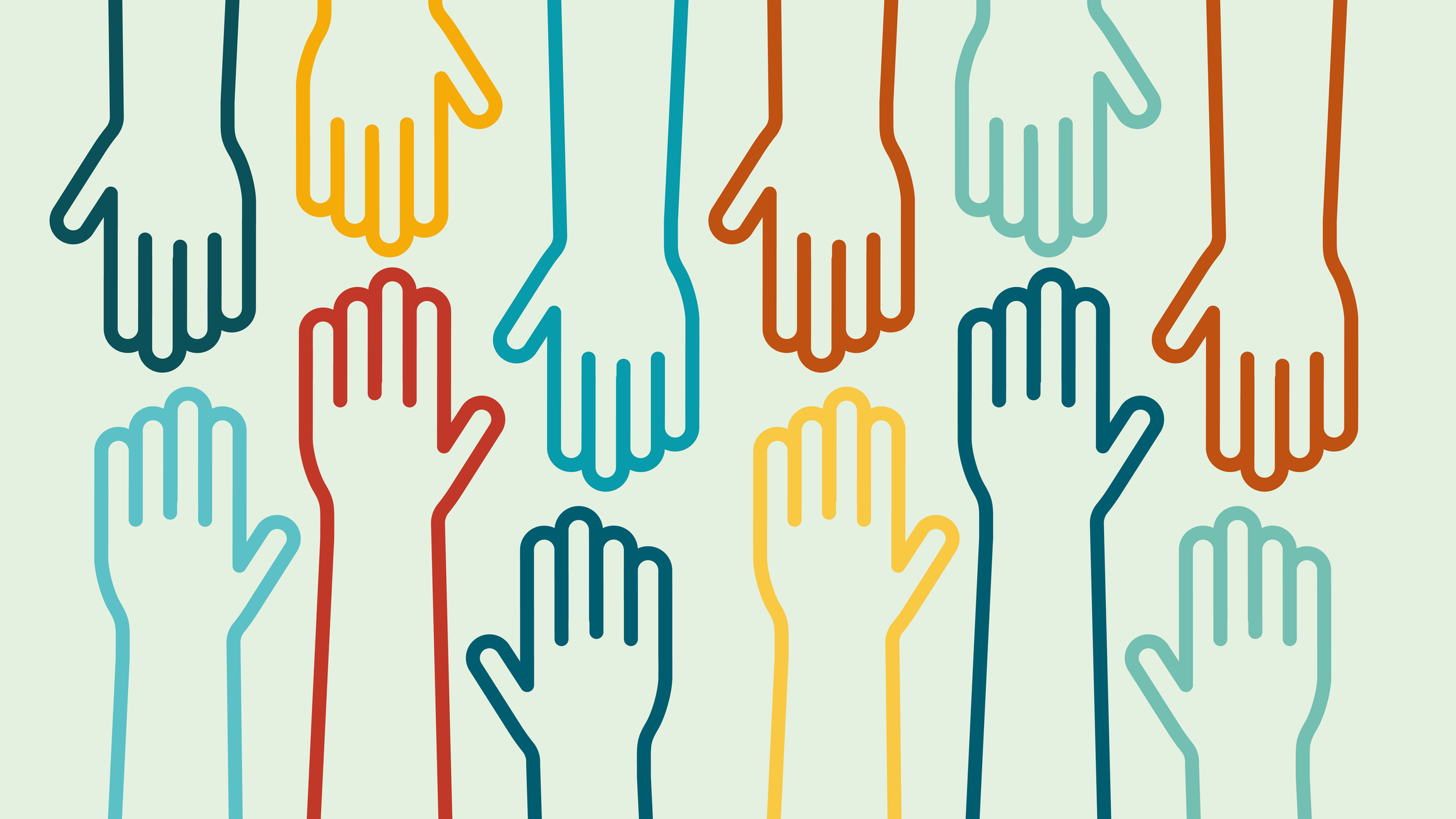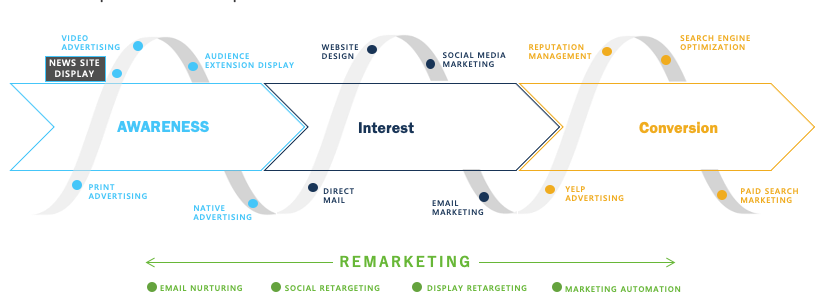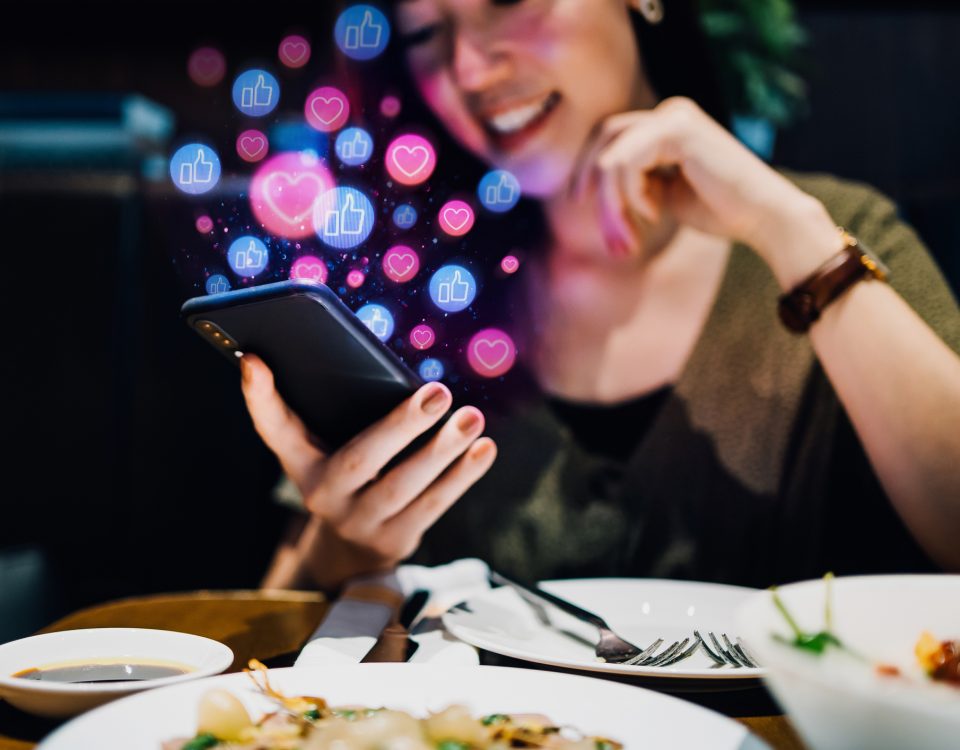ALBANY TIMES UNION BLOG
Find industry insights and updates relevant to your business needs.

Proactively Engaging With Your Community
February 18, 2021
Marketing Optimism | Signs of Hope One-Year Post Shutdown
March 12, 2021Connecting with consumers in a digital work is hard work. And as consumers are utilizing multiple channels in their path to purchase, brands must look closely at the platforms on which they are advertising and the types of customers they are looking to prioritize. As attention spans shrink and interactions become more automated, establishing a brand image can be exhausting.
However, through both the creation of content that best positions an organization as a trusted, leading entity and the subsequent distribution of such content with a precise goal in mind, brands can create powerful customer experiences.
As the modern consumer journey begins with awareness, moves to interest and conversion and culminates with a purchase, ensuring that both a broad targeting approach and a granular targeting approach are used in order to make an impact is vital. In the image below, you’ll see that we’ve included some of the various advertising and media options within this journey – to give you an idea of what you might look for to help you get more sales.

This week, we’ve highlighted some of the best ways to use Facebook as an advertising medium to reach people at the first, second and third stages of the consumer journey in order to maximize the platform’s targeting abilities and maximize your ROI.
Adapting to the Modern Consumer Journey
Before we jump into social strategies to connect with consumers, we want to quickly review aspects of the marketing funnel and how your organization can adapt to changing consumer needs and adopt a consistent method of engagement. We find that there are really three key ways to adapt to a prospect engagement landscape:
- Before launching an advertising campaign, the first step that is often over-looked is a thorough evaluation of both your current customer base as well as an assessment of your ideal customer. In order to be sure that you are targeting the right people and creating real value, understanding and gathering crucial information like personal demographics, geographic location, interests, browsing history and more is necessary.
- Next, ensuring that your current and prospective buyers can find the right content on the appropriate platform is key. And we’re not talking about just one facet or your business or just one product here. Make sure that your brand’s content touches upon not only all elements of your business, but also touches upon each phase of the marketing funnel. Why? Because it often isn’t clear to an organization what stage of the purchase process their prospect is in.
- Finally, don’t miss out on including all elements of the marketing mix! We’re talking about paid, owned and earned media here. Much like ensuring your content is diversified, incorporating multiple media channels into your marketing campaign streamlines your organization’s efforts and provides multiple touch points on multiple platforms that ultimately leads to sales.
Reaching Consumers at the First Level of the Marketing Funnel
We have established the methodology on how to adapt to the changing consumer journey, and now we can establish how to utilize specific platforms, namely Facebook, to drive engagement in some capacity at each phase in the marketing funnel.
Awareness, the first level of the marketing funnel, is the portion of the consumer journey where your campaign goal is to deliver your company’s message to the masses. Facebook awareness campaigns such as brand awareness or reach campaigns are optimized to appear in front of customers who are typically not yet familiar with your organization. Realistically in this phase, businesses should not be expecting any definitive action or purchase from consumers.
Duration for these campaigns largely depends on the size of your audience. However, for a Facebook awareness campaign, we recommend running the campaign for 2-3 weeks at a minimum. Depending on how the campaign has performed, it is very common (and often recommended!) to extend the campaign another couple of weeks to reach the most people as possible.
In fact, a traffic campaign (an advertising campaign that as the name suggests, drives traffic to your organization’s website, landing page, or online storefront) on Facebook is something that can continuously run for a business alongside additional campaigns on the social media platform. A continuously running traffic campaign is designed to reach a “cold” audience not yet familiar with your organization. However, once there is brand awareness (first level of the funnel), you have the ability to convert the cold audience to a warm audience that can then be targeted in a conversion campaign.
Reaching Consumers at the Second Level of the Marketing Funnel
Interest, or Consideration, is the second level of the marketing funnel. In this phase, businesses should be looking for increased actions from their target audience. For example, on Facebook advertisements, the audience should be clicking buttons to “learn more” or watching videos to ingest business or product information. In orderly to properly engage with an audience, these traffic or video view campaigns on social media require more concise targeting.
As this middle stage of the consumer buying journey is of great import, a traffic campaign (an advertising campaign that as the name suggests, drives traffic to your organization’s website, landing page, or online storefront) on Facebook is something that can continuously run for a business alongside additional campaigns on the social media platform. A continuously running traffic campaign is designed to reach a “cold” audience not yet familiar with your organization. However, once there is brand awareness (first level of the funnel), you have the ability to convert the cold audience to a warm audience that can then be targeted in a conversion campaign.
Reaching Consumers at the Third Level of the Marketing Funnel
The third level of the marketing funnel is the Conversion phase. Here, businesses should be looking for the most action from prospects and their target audience.
Example actions include filling out a lead form or purchasing items from a company’s e-commerce site. The more information you acquire from your audience, the more the campaign will cost. As a result, social media spend within this level averages at roughly $25 per day. The duration of a Facebook campaign focused on conversions largely depends on the size of your audience.
However, if you are retargeting your audience on Facebook, the campaign is typically less competitive and smaller than targeting an entirely new audience. However, you often spend more money on such an audience as these consumers are more likely to convert.
On the flip side, if you are targeting a lookalike audience for a conversion campaign, the audience is “cold” and not yet familiar with your brand or product. As a result, we recommend you run the conversion campaign for at least a month to get the best results. Why? It takes at least a week for any Facebook campaign to learn how to generate the best possible results for your organization’s campaign. (Didn’t know about Facebook’s learning phase? Read more about it here.) It is uncommon for a Facebook conversion campaign to be highly successful during this learning phase. As you’ve invested time, energy and resources into the campaign creation, you’ll want to give the campaign the chance to follow through and achieve results based on what it has learned.
Wrap Up
As digital consumer engagement continues to increase, brands must implement a marketing strategy that ads value for consumers, creates engagement, generates viable leads and culminates in revenue generation. While the modern consumer journey is changing, platforms such as Facebook exist to engage and adapt with consumers at every stage of the purchase process.
Are you unsure of your organization’s ability to create effective marketing campaigns? The Times Union Media Group can help. Our digital team provides one-on-one strategy recommendations and research to help achieve your business goals. Contact us today to get started!
####



Topics